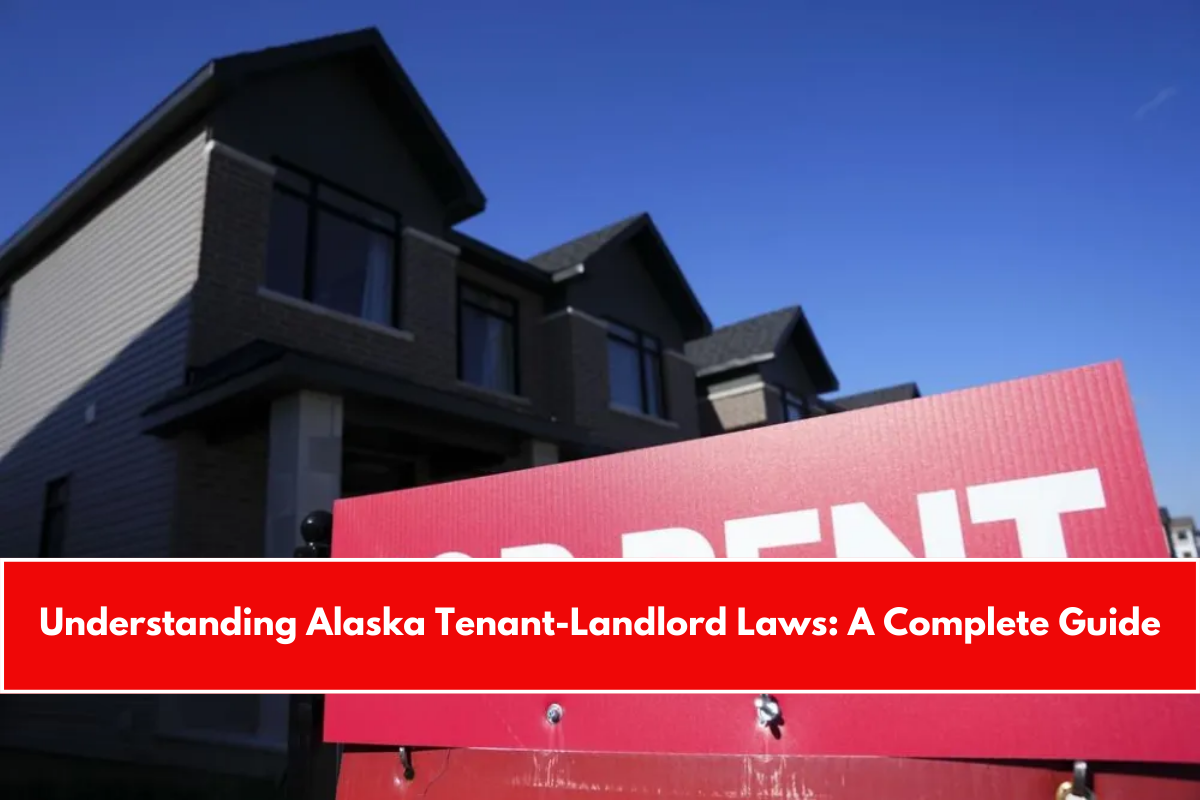Renting a home in Alaska comes with certain legal rights and responsibilities, whether you’re a tenant or a landlord. These rules are meant to keep the rental process fair and clear for both parties. Knowing these laws can help you avoid disputes and protect your interests.
Alaska’s rental laws are found under Alaska Statutes Title 34 and are overseen by the Alaska Department of Law. These laws cover everything from lease agreements and rent payments to security deposits, evictions, and discrimination protections.
Lease Agreements in Alaska
Fixed-Term Lease
This lease has a set time frame—usually 6 or 12 months. The tenant must pay rent and follow the rules during this period. The landlord can’t end the lease early unless there’s a serious violation.
Month-to-Month Lease
This type continues each month until either side ends it with 30 days’ notice. It’s more flexible, but offers less long-term security.
Important: Always try to have a written agreement. It should include rent details, security deposit, utilities, and responsibilities like yard work or appliance maintenance.
Security Deposit Rules
Alaska limits the security deposit to:
- 2 months’ rent for unfurnished homes
- 3 months’ rent for furnished ones
Landlords must keep the deposit in a separate escrow account and return it within 14 days after move-out. If they deduct any amount, they must give a written explanation.
Note: They cannot charge for normal wear and tear. If tenants feel deductions are unfair, they can dispute them and even go to small claims court if needed.
Rent Payments and Rent Increases
Alaska does not have rent control, meaning landlords can raise the rent by any amount. However:
- For month-to-month leases, a 30-day written notice is required.
- For longer rental periods (like yearly), a notice equal to that term plus 30 days is needed.
Rent hikes must not be retaliatory or discriminatory. Rent can’t be raised in the middle of a lease unless the lease allows it.
Landlord Repair Responsibilities
Landlords must maintain safe and livable conditions. This includes working heating, plumbing, electricity, and safe structures.
Repair Timeframes:
- Minor repairs: 7–14 days
- Emergency repairs: 1–3 days
If repairs are delayed, tenants can:
- Hire someone and deduct the cost from the rent (with notice)
- File a complaint or take legal action
- Withhold rent for serious issues
- End the lease in extreme cases
Always report repair issues in writing and document the situation.
Evictions in Alaska
Landlords can evict tenants for several reasons:
- Nonpayment of rent: 3-day notice to pay or leave
- Lease violations: 10-day notice to fix the issue or move
- Illegal activity: Immediate eviction possible
- Nuisance or disruptive behavior: 10-day notice
- No reason (month-to-month leases): 30-day written notice
Eviction follows a legal process. If tenants don’t leave, landlords must go to court to get a writ of restitution for law enforcement to remove them.
Tip: Leaving voluntarily before eviction is finalized helps avoid a mark on your record.
When Can a Landlord Enter Your Home?
Landlords must give at least 24 hours’ notice before entering, except in emergencies.
They can enter without notice if:
- There’s an emergency
- The tenant asked for repairs
- Showing the unit to potential renters or buyers
- The tenant has abandoned the property
Entry must happen during reasonable hours, usually during the day.
Tenants can refuse entry if notice wasn’t given or if the timing is unreasonable.
Ending a Tenancy
Fixed-Term Lease
Ends automatically after the term. If the tenant stays, it becomes month-to-month unless a new lease is signed.
Month-to-Month Lease
Requires 30 days’ written notice to end. Tenants must give notice one full rental period in advance.
Abandonment
If rent isn’t paid for 15 days and the unit is empty, landlords can treat it as abandoned after giving 5 days’ written notice.
Squatters’ Rights (Adverse Possession)
A squatter can claim ownership after 10 years if:
- They live on the property openly and without permission
- They use it like an owner would
- They don’t share possession
- They improve or live on the land
Owners can prevent this by:
- Regular property checks
- Removing trespassers
- Marking boundaries clearly
Protection Against Housing Discrimination
It’s illegal for landlords to discriminate based on:
- Race, religion, color, sex, disability, national origin
- Pregnancy, marital status, parenthood, or age
Some cities like Anchorage also protect against:
- Sexual orientation
- Gender identity
- Source of income
Complaints can be made to the Alaska State Commission for Human Rights or local agencies.
FAQs
What can’t a landlord do in Alaska?
They can’t enter without notice, discriminate, retaliate, evict without cause, or charge for normal wear and tear.
How long does a landlord have to fix something?
Minor: 7–14 days. Emergencies: 1–3 days.
When does a guest become a tenant?
Usually after 14+ days of stay or repeated overnight visits.
Is Alaska tenant-friendly?
Yes. It offers balanced protections for both tenants and landlords.
Can a landlord enter without permission?
Only in emergencies or special situations like abandonment or tenant-requested services.
What’s the process for eviction?
Starts with written notice, followed by a court filing if the tenant doesn’t comply. A judge decides if the tenant must leave.


















Leave a Reply